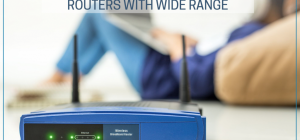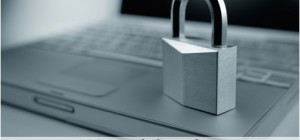 Have you ever been enjoying fast Wi-Fi speeds when out of nowhere things started slowing down? And you couldn’t identify the culprit and it really messed things up for you? I bet you eventually discovered what the problem was, and here are some more things to watch out for next time.
Have you ever been enjoying fast Wi-Fi speeds when out of nowhere things started slowing down? And you couldn’t identify the culprit and it really messed things up for you? I bet you eventually discovered what the problem was, and here are some more things to watch out for next time.
Poor Signal Reception
If you are suffering slow Wi-Fi, check the quality of the signal on the device you are using. Often, chances are that you are not within range of the signal being broadcasted by your router.
Sometimes, the signal is good but your best Wi-Fi speed test app tells you that the Wi-Fi speed is still slow. That just means chances are that it is the fault of your ISP (Internet Service Provider) or your router is acting up. Often, restarting it solves the problem.
If your device is indicating that there is weak signal strength, then you should either move around in your home to find a location where the signal is better or move the router itself to a location where other devices can easily receive its signal.
Furthermore, beware of walls or metallic sheets like lead, as these can also interfere with the radio signals from your router or source of Wi-Fi.
External Interference
If your neighbor also has a router with Wi-Fi capability, chances are that there may be signal interference between your neighbor’s router and yours. This interference may affect the quality of the signal you are receiving from your device.
Other culprits are fridges, microwaves and other devices that emit electromagnetic waves. These waves could interfere with the signal from your router, causing a weak signal.
If this is the case, try moving your router to another location.
Leeches
If you are sharing your Wi-Fi with others, you should be careful about who you let access your network as well as how they are using it. Moreover, you should know the limits of your Wi-Fi. Too many people will use up all the bandwidth available and no one will be able to enjoy the internet.
Be particularly careful of hackers or people who somehow got the logins for your Wi-Fi and connect whenever they please. These are the main leeches. When you have accounted for everyone else, they don’t show up on your Wi-Fi analysis. They cause you to think something is wrong. The best way to keep such people away from your Wi-Fi is to implement advanced Wi-Fi security like wireless mac filtering and hiding your SSID.
Internal Failures
Your router or the device (smartphone, tablet, laptop) you are using could be failing. In such a case, you may need professional help. If you can’t really figure out what is happening, then consult a computer networking expert and let them assess the matter for you and give feedback.
In case you are using a laptop or desktop computer, note that it is not necessarily the entire machine that may be failing, as these devices are a system of various components working together. The culprit could be your network adaptor that’s failing or poorly configured. I’m just letting you know so that someone doesn’t rip you off telling you that you need to buy a new device; unless you are using a very old model – in which case, getting a completely new device makes more sense.
Poorly Configured Computer Applications
Laptops and desktop computers are often culprits for slowing down networks and this is mostly due to poor configuration. If you are not computer savvy, you may want to reach out to some who is, because this part may be out of your league.
Now, computers often have software that love to update themselves if not put in check. This issue is not common in smartphones and tablets. Even if apps on smartphones and tablets update themselves, they cannot compare to the amount of data software on computers consume. Operating systems like Mac OS or Windows can do a software update that is as big as 3GB. If you have fast internet and unlimited data, then this may seem like nothing, but if you are on a network with limited data or many users sharing the network, downloading such large amounts of data will often slow down the network.
The best option with computers is to set your operating system to download updates only when you instruct it to. Do the same with other software because many of them will just download updates automatically if not instructed otherwise.







